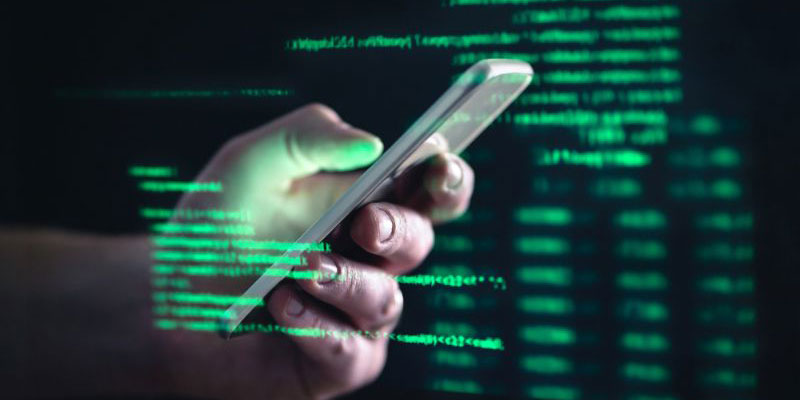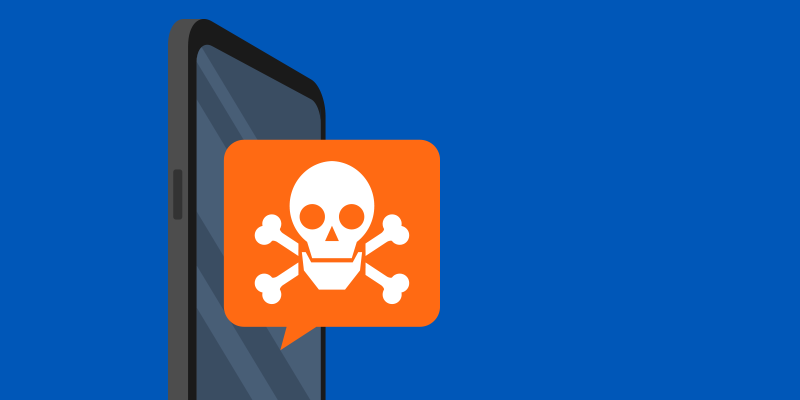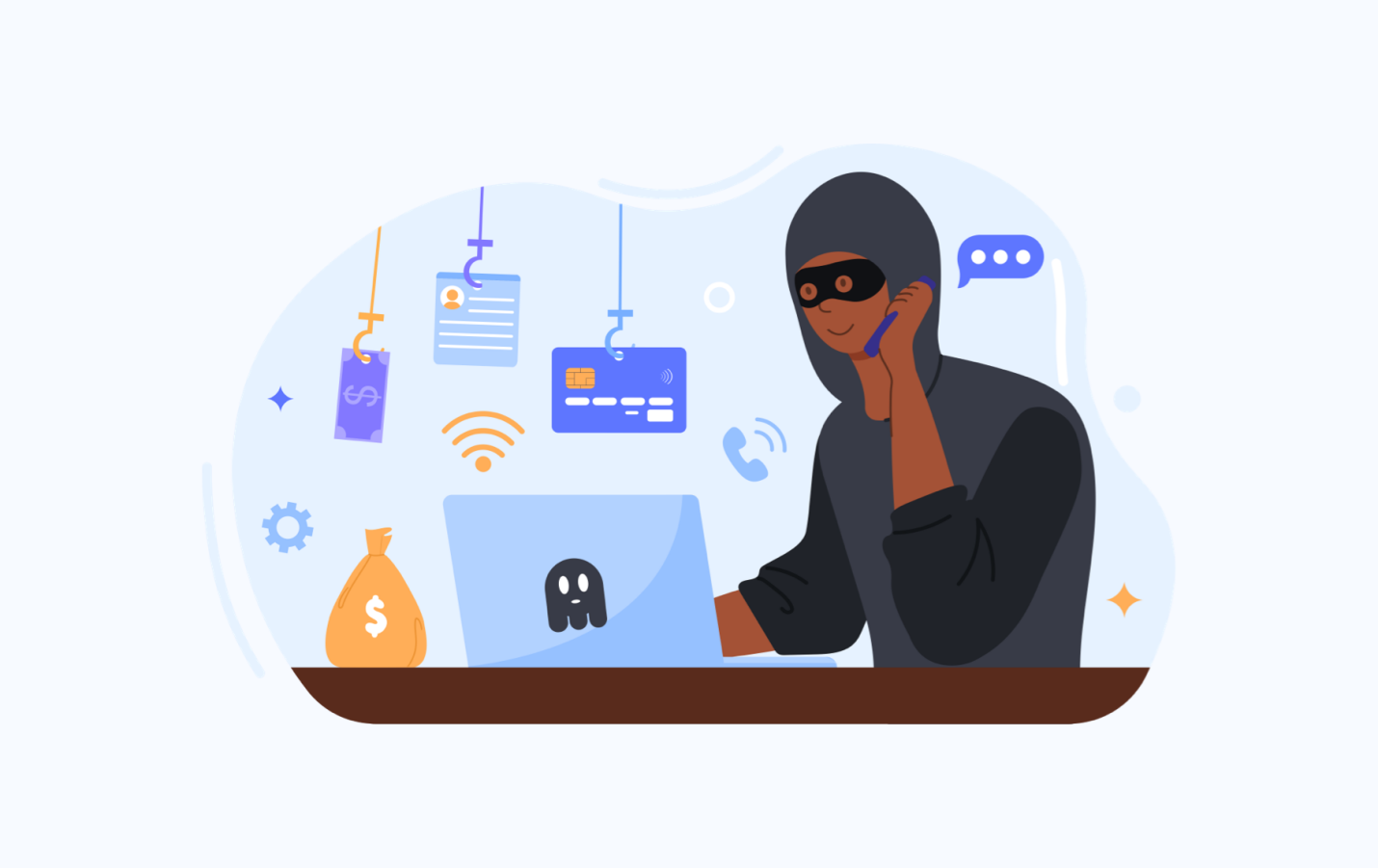
It typically takes the form of a phone call that comes across as urgent or worrisome. You get a call out of the blue from someone claiming your bank account has been hacked, and they need your PIN to authenticate your identity or release the account. Other times, fraudsters claim to represent a government department like the Internal Revenue Service or the Social Security Administration. They may repeatedly demand payment. Or, they may tell you that you've won but that you have to cover shipping and handling costs.
All of these are examples of "vishing," a combination of the words "voice" and "phishing" that describes a type of phone-based fraud. The term "phishing" is used to describe any fraudulent attempt by cybercriminals to obtain sensitive information or financial resources from its targets. Email and text messaging systems (termed "smishing" for short) may also be used to spread malware.
Fraudsters still use Vishing because they know that many people may be fooled by fast, convincing speech. Some of these scam calls are obvious and may be easily avoided, but others are subtler and can trick even the most vigilant of customers, especially if the caller acts urgently.
Avoiding Scammers Before It Begins
Scammers are often easy to recognize since they initiate contact with you rather than waiting for you to contact them.
The safest thing to do is to tell the scammer, "I'm OK, I'll call you right back," and then dial the actual bank's number yourself for avoiding scammers. Don't ever respond to a phone call from an unknown number. You could get a call from a genuine person sometimes, but the vast majority of them are from scammers.
You may always reach the bank at the number printed on the back of your debit or credit card, and a real agent will never object if you want to do so.
If you don't want to give up your location, don't answer the phone, text, or DM in the first place, you may increase your level of protection even further.
Caller ID spoofing is illegal and should be reported to the FCC if you encounter it. Once a scam calls artist has your number, it may be sold and shared among other criminals.
The Most Frequent Vishing Scams

Calls made using vishing might be made by a human, an automated system, or both. The caller may have no prior knowledge of you, or they may use personal information (such as your address or the last four digits of your SSN) to gain your confidence. Someone calling you at work could try to trick you into giving up your CashPro® or Online Banking information by pretending to be a colleague.
No matter how hard you try, you'll always be asked for additional information. There are many different types of vishing, but here are a few of the most common:
Addressing an Issue with Your Account and Getting It Resolved.
A caller, claiming to be from your bank or another institution with whom you do business, informs you that there has been an issue with your account, either because of recent activity, suspicious activity, or a refund that is due to you. The caller wants you to provide them with information that will help them address the problem, such as an access code or account number.
A Payment Request.
Pretenders may pose as representatives from legitimate organizations, such as the Internal Revenue Service (IRS) or the Federal Bureau of Investigation (FBI), or as workers from a collection agency. They may threaten you with arrest or a fine unless you pay what you owe right now. In order to make their request seem more credible, the fraudster may also contact you by text message.
Technical Support.
Unwanted calls or voicemails from reputable firms may direct you to call a customer care number in order to get help with your tech products or services.
Registration Frauds.
Criminals often pretend to be government employees in order to trick people into giving them their personal or financial information, usually in the form of a Social Security number or Medicare number, so that they can join the program or get rewards. Scammers have also used the SBA's Paycheck Protection Program to prey on business owners who are in the market for a loan.
The Process of Redeeming a Prize or Benefit.
This vishing call is a variation of an old scam that claims the receiver has won a contest or may take advantage of a special, time-sensitive offer. The next step is to ask for some sort of personal or financial data.
How to Avoid a Scam?

Before you pick up an unexpected call, there are a few basic guidelines to keep in mind for Avoiding Scammers:
- You shouldn't pick up the phone if the number isn't familiar. However, remember that vishing fraudsters occasionally leave a callback number in a voicemail. Do not return a call without verifying it is from a company you recognize. Remember that the IRS and other government entities will only contact you by mail before calling you.
- Never believe a number displayed on caller ID. Spoofing the official phone numbers of well-known businesses and services is a common tactic used by criminals.
- Hang up or don't answer the phone if you have any doubts about the caller's legitimacy, even if you identify the caller's organization. Do not utilize your callback feature if you have any doubts about the legitimacy of the call; instead, call back a number you have independently confirmed. If someone calls and claims they're from your bank, but you've never heard of them before, you should probably just hang up.
- Even if the caller already knows some of your personal information, you should not provide any further details. Scammers will use whatever personal information they can get their hands on, including information they've stolen from other sources or found on the dark web, to their advantage in order to convince you to give them even more. Any information a caller claims to have about you or your business should not be taken as proof that they are legitimate.
- Never give out your Bank account information over the phone unless you initiate contact with the bank directly.



